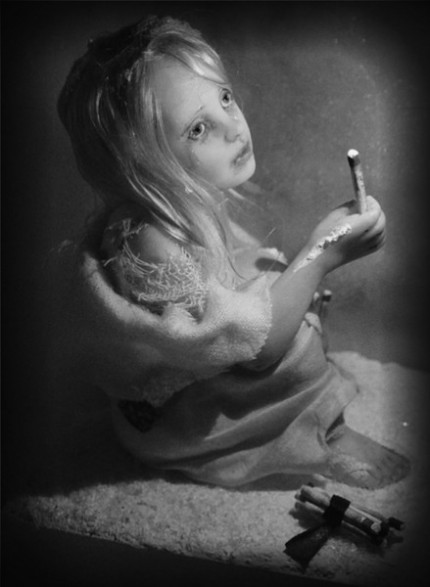Bella Voce Camerata off to a mixed start in debut concert

Three years in the “dreaming,” and another two years in preparation, according to Bella Voce music director Andrew Lewis in spoken remarks, the conductorless Bella Voce Camerata made its debut Saturday night at Grace Lutheran Church in River Forest.
Lewis had originally planned on the Camerata presenting the area premiere of David Lang’s Pulitzer Prize-winning choral work The Little Match Girl Passion in its one-singer-per-part form, but Ravinia beat him to the punch last August. In fact, this was no less than the third area performance of the piece in the past year, with the Bienen Contemporary/Early Music Vocal Ensemble having presented the choral version in late January.
The four singers — soprano Kirsten Hedergaard, mezzo-soprano Lindsey Adams, tenor Patrick Muehleise and baritone Eric Miranda, who also simultaneously played percussion — were certainly up to the task logistically, but had difficulty sustaining balances and pitch control across the 35-minute work.
Part of the problem was that the glockenspiel, which does not enter until the first narrative section, was not in sync with the pitches the vocal ensemble had already established.
Muehleise, who was playing it while singing the tenor part, quickly realized the problem and recovered by subtly hitting key pitches before later movements, which did help somewhat. But the same problem emerged when other tuned percussion tentatively entered in to ornament later sections.
This, combined with the difficulty of each singer representing an entire section, as it were, meant that some of the work’s closer and more dissonant harmonies became unfocused.
Balance was an issue as well, the women often overpowering the men and not enough distinction being established between vocalise effects and words that needed to be clearly enunciated so that the narrative — so crucial in this work — could be clearly understood.
With often less-than-ideal diction, the supertitles and the printed program acted as an audience lifeline for a performance that, despite such issues, still managed to convey the work’s spiritual qualities.
Given that there is a choral version, it is unclear why Bella Voce did not simply present that version in its full-scale glory with the established ensemble and with a conductor as a safety net rather than leave four artists to tightrope their way through such a difficult piece—especially in a debut concert for a new ensemble.
Far more effective was the opening work on the program, Buxtehude’s substantial Membra Jesu patientis sanctimissa, a series of cantatas based on the Passion of Jesus; five of the seven were performed.
Each opened and closed with a choral section that could indeed be seen as 17th-century forerunners of what Lang was doing in The Little Match Girl Passion.
Taken as a whole with its many devotional aria sections — all of which were exquisitely sung — the work clearly foreshadows the Bach Passions that would set the bar for the Passion genre and which so inspired Lang to allegorize a Hans Christian Anderson fairy tale using the Passion genre.
Soprano Laura Lynch was added to the four singers that performed the Lang piece, which were accompanied by an excellent Baroque ensemble of two violins and continuo that kept momentum and energy high.
The sopranos again tended to dominate to the point where in the ensemble sections, balances were tipped. The more evenly-balanced alto, tenor and bass ensemble sections managed to offer a glimpse of what the Bella Voce Camerata could become.
The program will be repeated 3:30 p.m. Sunday at St. Luke’s Episcopal Church in Evanston; bellavoce.org.
Posted in Performances




